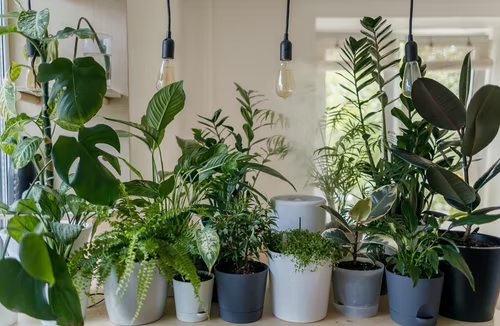HOW TO ENSURE YOUR AIR-QUALITY IS GOOD DESPITE HUMIDITY AND HEAT
RH Business Marketing Solutions
With outdoor air pollution being a continuous threat to your health, ensuring adequate air quality inside your home is more crucial than ever. Unfortunately, the warmer months only exacerbate the effects of the pollution - and not just because of the high temperatures. Spring and summer bring high pollen concentrations, increased water usage, and higher evaporation rates, causing humidity. Here is how to ensure your air quality remains good, despite warm and humid weather.
Eliminate Pollutants
The first step in improving your air quality is addressing the pollution level, regardless of the temperature. Eliminate sources of smoke and VOCs (volatile organic compounds) such as formaldehyde. The latter is often emitted by glue used in new composite furniture, so you should opt for used pieces instead. The use of cleaning products and household chemicals should also be limited to reduce the level of compounds they emit. Lastly, try to eliminate any sources of allergens like mold, dander, and dust mites.
Improve Ventilation
While ensuring proper ventilation in your space is always necessary, it's even more crucial when outdoor temperatures are higher. The best solution for this during the warmer months is using an air conditioning system. If you already have an HVAC system or AC unit installed, ensure you have it serviced regularly by a licensed professional. It is recommended that you do your research and only contemplate professionals who can verifiably provide a 5 star service for your specific type of air conditioning system. This also applies if you don't have an air conditioning system and are just getting ready to install them.
Reduce Humidity
An air conditioning unit will typically work for reducing indoor humidity as well. If it doesn't, you either aren't using it properly, or it's not functioning as it should. Try to resolve these issues as soon as possible so your unit can resume eliminating humidity from your space - alongside common pollutants. Preventing evaporation and excess water use may also help you reduce humidity levels in your home.
Use Air Purifiers
Even if your air conditioning system eliminates humidity and heat, you may still find indoor air pollution too high. If you aren't able to eradicate all the pollution sources from your home, the next best option is to invest in air purifiers. Most of these come with a high-efficiency particulate absorbing (HEPA) filter, which is more effective in removing parts from the air than traditional air conditioning units. These are particularly valuable for people suffering from allergies.
Get Indoor Plants
House plants can also help you ensure you have good indoor air quality. Besides eliminating particles, greenery can also help you regulate humidity, oxygen, and carbon dioxide levels. Make sure to use plants with an increased air-purifying ability, such as Peace Lily or Dracaena, which can effectively combat the effects of high volatile compounds. That said, you will also need to ensure these plants don't become the source of the problem by becoming moldy or releasing pollen.
The key to preventing humidity from aggravating air pollution in your home is to lower it as much as possible. Typically, this can be solved with an efficient air conditioning system. However, if needed, you can also employ other techniques like using an air purifier that helps eliminate the pathogens from the air. And, of course, you mustn't forget about the natural air purifying quality of plants either. They will help regulate humidity and improve your comfort levels regardless of the indoor temperatures.

